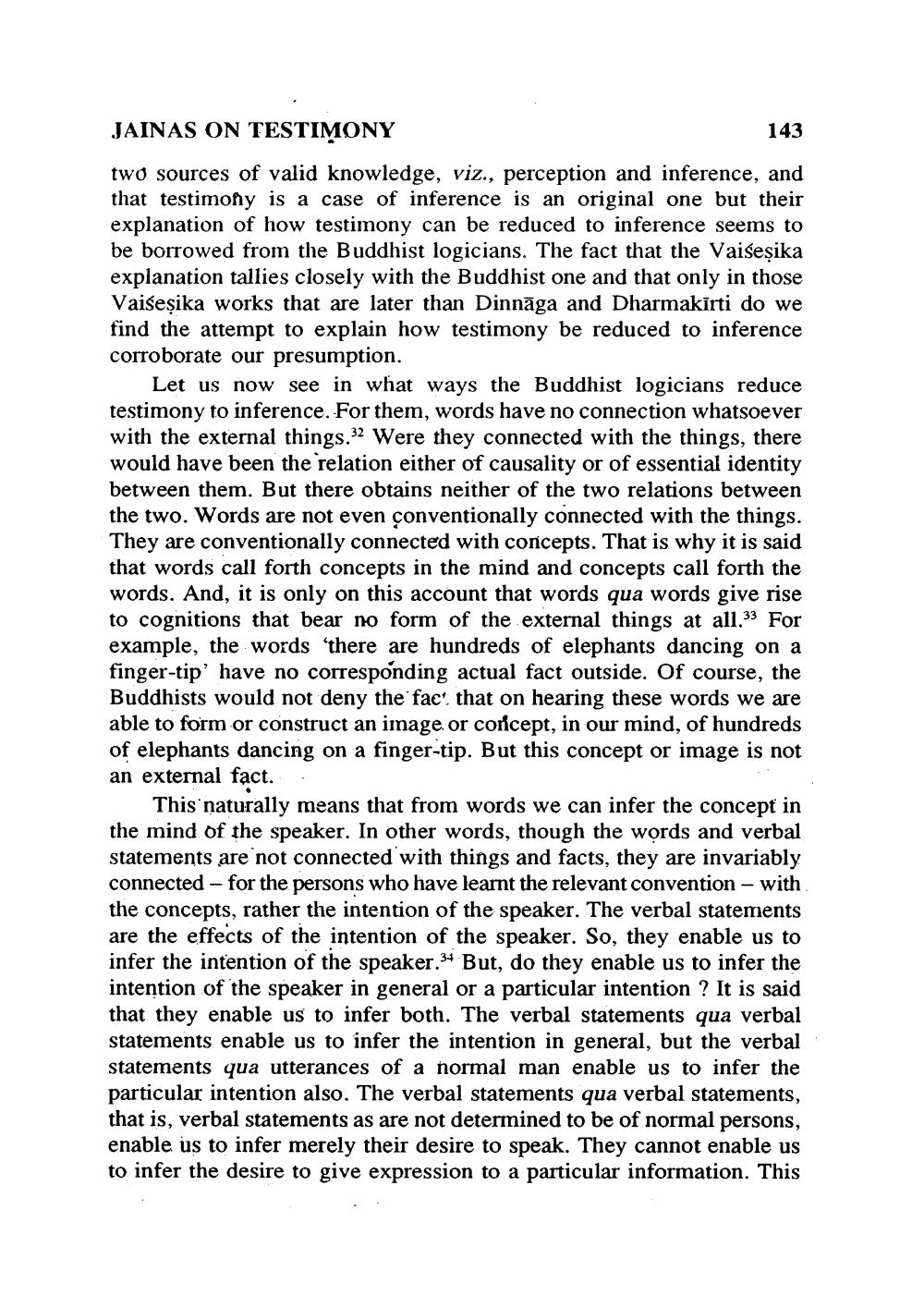________________
JAINAS ON TESTIMONY
143
two sources of valid knowledge, viz., perception and inference, and that testimony is a case of inference is an original one but their explanation of how testimony can be reduced to inference seems to be borrowed from the Buddhist logicians. The fact that the Vaisesika explanation tallies closely with the Buddhist one and that only in those Vaiseșika works that are later than Dinnāga and Dharmakirti do we find the attempt to explain how testimony be reduced to inference corroborate our presumption.
Let us now see in what ways the Buddhist logicians reduce testimony to inference. For them, words have no connection whatsoever with the external things.32 Were they connected with the things, there would have been the relation either of causality or of essential identity between them. But there obtains neither of the two relations between the two. Words are not even conventionally connected with the things. They are conventionally connected with concepts. That is why it is said that words call forth concepts in the mind and concepts call forth the words. And, it is only on this account that words qua words give rise to cognitions that bear no form of the external things at all.33 For example, the words 'there are hundreds of elephants dancing on a finger-tip' have no corresponding actual fact outside. Of course, the Buddhists would not deny the fac' that on hearing these words we are able to form or construct an image or concept, in our mind, of hundreds of elephants dancing on a finger-tip. But this concept or image is not an external fact.
This naturally means that from words we can infer the concept in the mind of the speaker. In other words, though the words and verbal statements are not connected with things and facts, they are invariably connected - for the persons who have learnt the relevant convention - with the concepts, rather the intention of the speaker. The verbal statements are the effects of the intention of the speaker. So, they enable us to infer the intention of the speaker.34 But, do they enable us to infer the intention of the speaker in general or a particular intention ? It is said that they enable us to infer both. The verbal statements qua verbal statements enable us to infer the intention in general, but the verbal statements qua utterances of a normal man enable us to infer the particular intention also. The verbal statements qua verbal statements, that is, verbal statements as are not determined to be of normal persons, enable us to infer merely their desire to speak. They cannot enable us to infer the desire to give expression to a particular information. This




